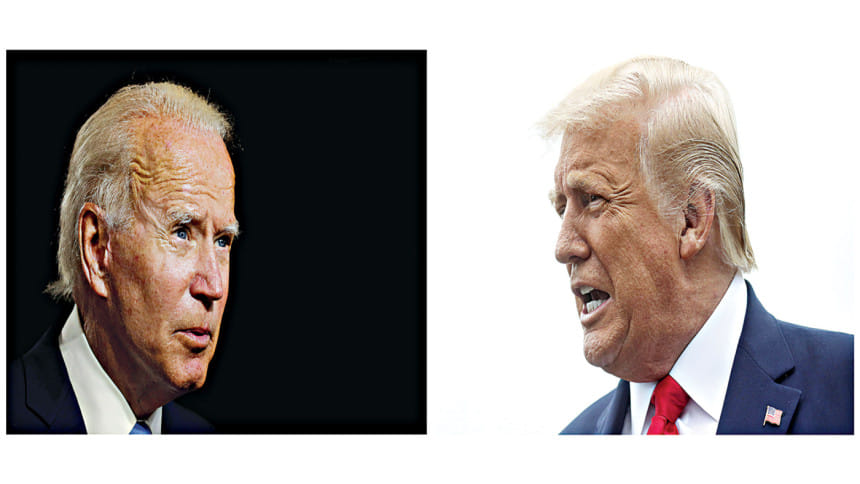Vote early, vote massively

Democratic leaders have been urging Joe Biden supporters to show up in huge numbers and vote early amid concerns that nothing short of a decisive victory will prevent Republican President Donald Trump from contesting the results, potentially opening the way for state legislatures, the courts or Congress to decide the outcome.
Trump continues to trail Biden by as much as 17 points in the national polls and acknowledged his concern during his latest rally appearance in Des Moines, Iowa, on Wednesday night, telling his loyal crowd: "For me to only be up six [in Iowa], I'm a little bit concerned, I'll tell you that."
In a further sign of his desperation, the president later tweeted an astonishing plea to voters in the solidly-Democratic state of California, asking them "WHAT THE HELL DO YOU HAVE TO LOSE?" in voting for him.
Biden announced via Twitter that his campaign raised a record $383 million in September, adding to a campaign warchest that is already dwarfing the Trump campaign. Biden has $432 million cash on hand, the campaign said.
Trump has repeatedly and without evidence declared mail voting to be riddled with fraud and the election "rigged" in favor of Democrats, all the while refusing to commit to ceding power peacefully if he loses.
Nationally, 14.6 million people have already cast ballots by mail or through in-person voting, compared to roughly 1.4 million at the same point four years ago, according to the United States Elections Project. And, data shows, most of them are Democrats.
While early turnout is encouraging for Democrats, the Biden camp is preparing for the worst.
Democrats say their turnout campaign is especially critical this year as Republicans seek to restrict mail-in voting despite the pandemic, and both parties fight over how votes are tallied in key states. Dozens of lawsuits have been filed in multiple states, many focused on mail-in voting.
Then there are the post-election preparations. Biden's national legal team is examining a series of scenarios, including those in which Trump casts doubt on the integrity of a close contest, campaign advisors said. Among them is the possibility that a lengthy or disputed count of mail ballots could result in Republican-controlled legislatures in key states intervening to award their Electoral College vote to Trump.
The US presidency is clinched by winning a majority of the 538 votes apportioned to the 50 states and Washington DC in the Electoral College. Hillary Clinton, the 2016 Democratic nominee, won the national popular vote by nearly three million votes but lost the Electoral College, and thus the presidency.
Typically, governors certify the results in their respective states and share the information with Congress. But it is possible for "dueling" slates of electors to emerge, in which the governor and the legislature in a closely contested state could submit two different election results.
The risk of this happening is heightened in states where the legislature is controlled by a different party than the governor. Several battleground states, including Michigan, Pennsylvania and Wisconsin, have Democratic governors and Republican-controlled legislatures.
According to legal experts, it is unclear in this scenario whether Congress should accept the governor's electoral slate or not count the state's electoral votes at all.

 For all latest news, follow The Daily Star's Google News channel.
For all latest news, follow The Daily Star's Google News channel. 



Comments